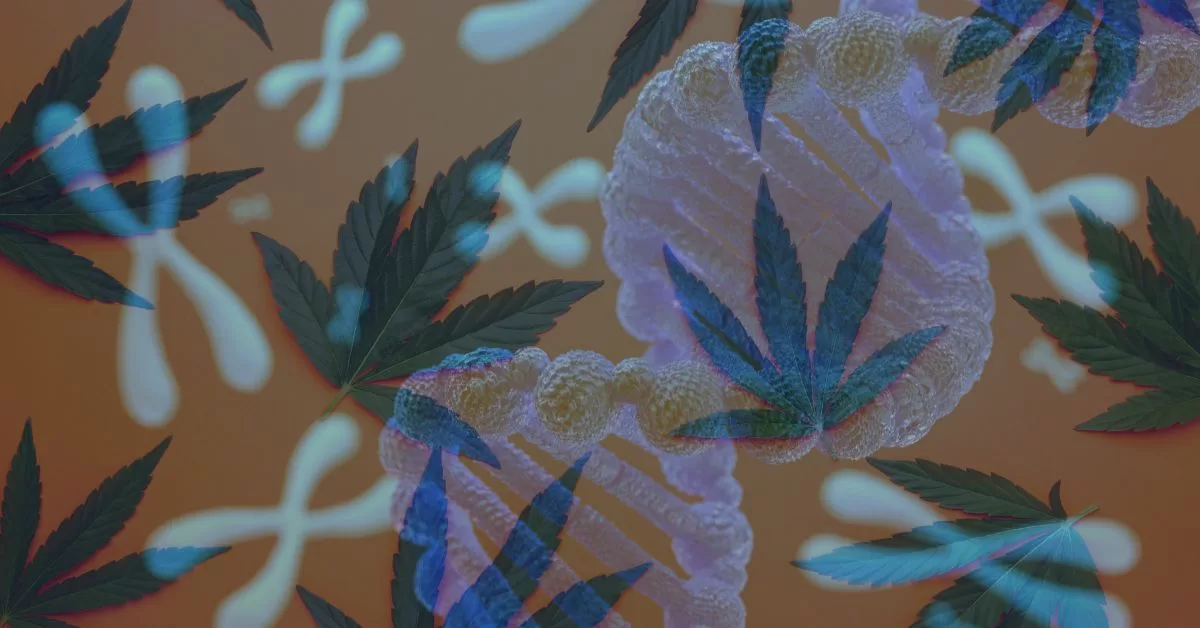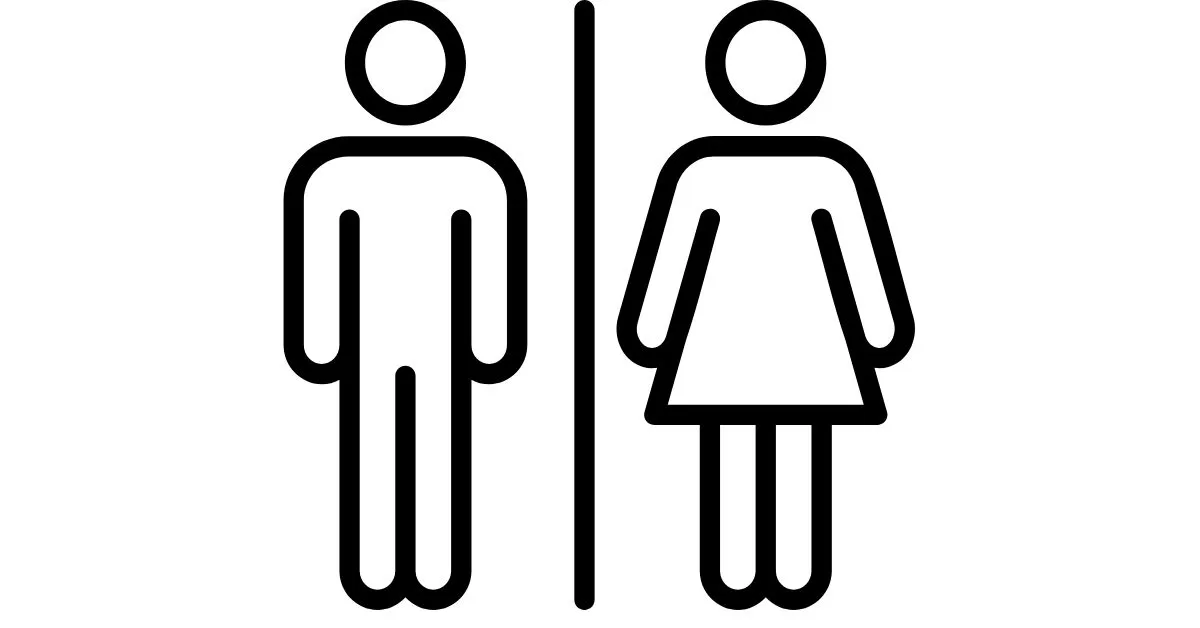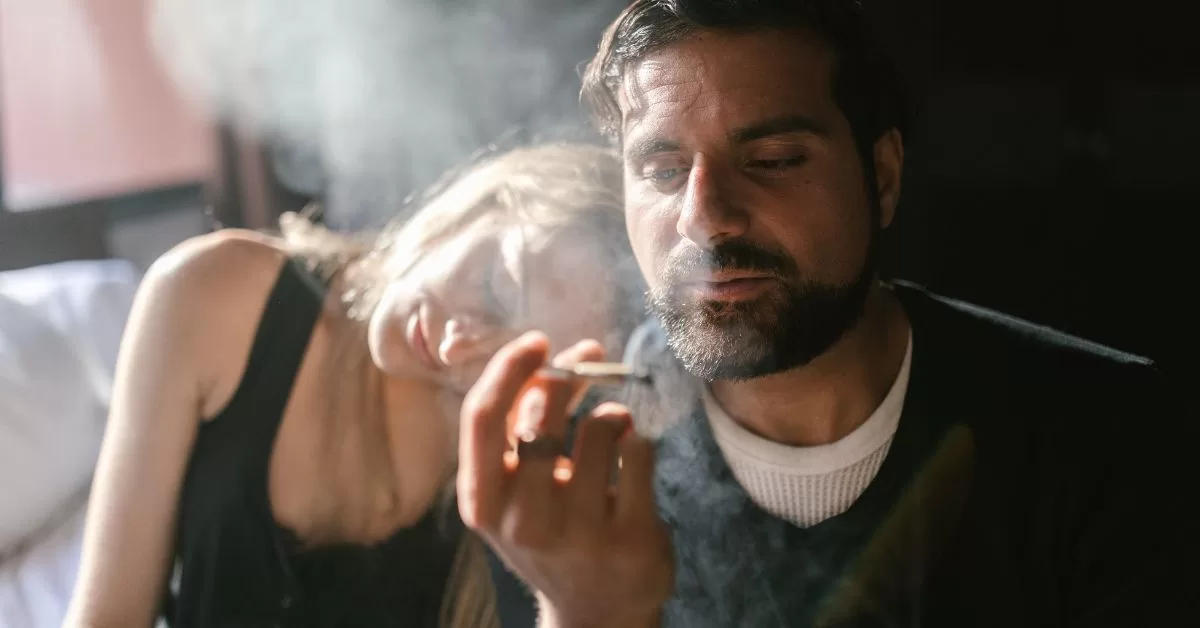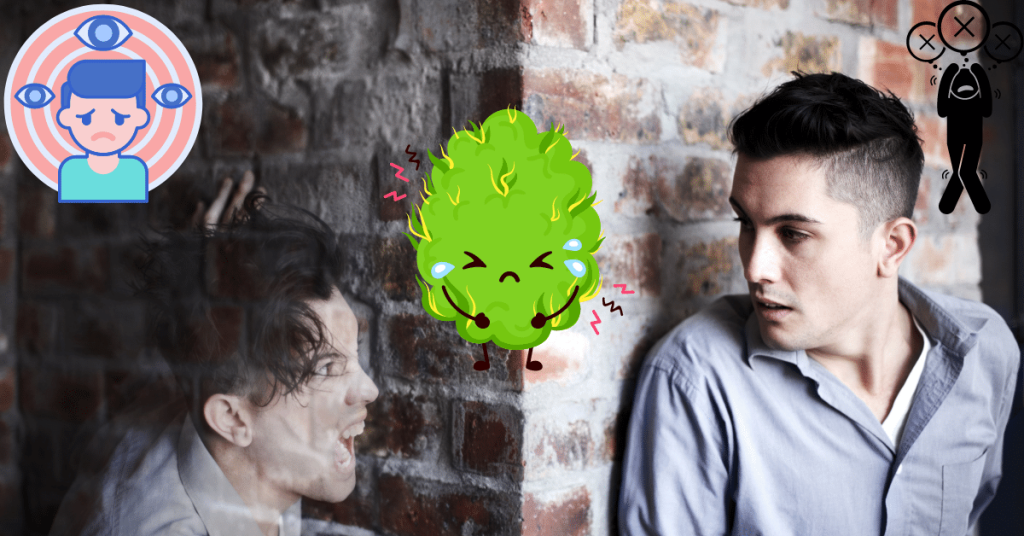First and foremost, it is critical to comprehend what paranoia entails to understand why cannabis makes some people paranoid.
Many who have had the misfortune of experiencing it say it’s like anxiety, but it is more specific and oriented towards a particular situation or person.
Paranoia is also defined as an irrational fear of people, the surroundings, or a situation. It entails a feeling of being watched and observed by someone or a group of individuals to harm you, according to victims.
Table of Contents
Understanding the brain and why cannabis makes some people paranoid?
The human endocannabinoid system, or ECS, has been responsible for the paranoia or paranoid feeling that users sometimes experience.
When consumed, certain chemicals in cannabis bind to endocannabinoid receptors in the human brain. THC, the principal psychoactive ingredient in cannabis, is one of these molecules.
THC also binds to the amygdala receptors in the brain. The amygdala regulates fear and related emotions such as worry, tension, and paranoia.
When THC-rich cannabis is consumed, the brain and these receptors are flooded with more cannabinoids. Excess cannabinoids overstimulate amygdala receptors, resulting in sensations of fear, anxiety, and paranoia.
This explains why cannabis strains high in CBD, a cannabis component that doesn’t bind directly to endocannabinoid receptors, and low in THC don’t elicit paranoia.
Reasons why cannabis makes some paranoid and not others?
Only a tiny minority of cannabis users say they’ve felt paranoid or had paranoid thoughts after smoking the herb.
Furthermore, it is well known that cannabis makes some people paranoid occasionally and not all the time. What is the reason for this? There is no single driver or solution to this. However, the following factors have a significant impact and contribute to it.
1. THC tolerance

THC, the mind-altering component in cannabis, has varied effects. Some marijuana users and consumers have a significantly higher THC tolerance than others.
THC tolerance varies due to various factors, including heredity and how frequently marijuana users ingest it.
The psychotropic components in cannabis, THC, and CBD, are known to have and provide a biphasic reaction. This means that depending on how often individuals use and ingest these substances; they are bound to respond differently.
There is evidence that tiny quantities of THC provide therapeutic benefits to users. Micro dosing is recommended, feasible, and extensively used to get the most out of it.
The more you drink, the more likely you will experience negative or counterproductive results.
Users should be aware that they should use caution when consuming cannabis through food. They are known to have higher levels of THC from marijuana, which increases the likelihood of experiencing paranoia.
Furthermore, because the high usually lasts long, users eat more to achieve a faster high. Remember that more pot equals more THC, which is why cannabis makes some people paranoid.
2. Genetics

The effects of cannabis on the brains of animals were studied in a study published in Nature in 2019.
When the substances in cannabis primarily excited or stimulated the brain’s front region, researchers noticed that they lowered negative emotions like worry, stress, and depression and caused positive feelings like relaxation and tranquility because the front part of the brain has more cannabinoid receptors, according to the researchers.
As a result, if a user’s rear brain has a higher THC sensitivity than their front brain, they are more likely to have an unfavorable reaction. This adverse reaction is characterized by negative feelings such as anxiety and paranoia.
3. Gender

This notion isn’t wholly established; however, in understanding why cannabis makes some people paranoid, it was revealed in a 2014 study published in the journal Drug and Alcohol Dependency. Experts discovered that increased estrogen levels increase marijuana sensitivity by up to 30% and lower THC tolerance.
This indicates that women are more likely than men to be sensitive to marijuana’s effects. As a result, people are more likely to have negative mental impacts such as paranoia and worry.
Nevertheless, they are more likely to have stronger beneficial benefits like pain reduction and relaxation.
4. Age
As we become older, our brains and endocannabinoid systems alter. Cannabis is recognized to be safe for users under the age of 25. However, this changes around 45. Some of the consequences after 45 are unforeseeable, but cannabis makes some people paranoid.
5. Mood

During a hit, the emotions and environment of users have an impact. Too much THC can make you feel paranoid if you’re already stressed out. If you’re already anxious about getting caught high, you’re likely to become much more nervous when you’re high.
6. Cannabis strains
Cannabis strains have also become more potent and vital over time. It was more challenging to obtain THC-rich cannabis in the 1970s.
On the other hand, producers nowadays are aiming for more potent strains. The maximum THC you could acquire was 5% back in the day. THC levels might reach 20% these days, which is considered typical of why cannabis makes some people paranoid
How to Reduce the Risk of Paranoia When Using Cannabis
It’s critical to exercise prudence before hitting a joint or eating that tasty. Ascertain that the setting is safe and close to, if not quite perfect.
This entails locating a comfortable location that allows for effortless consumption without concern. Avoid areas where you must look over your shoulder all the time. For added comfort, consider dimming the lights and selecting a calming song.
The most excellent suggestion is to avoid THC-dominating strains if you are already paranoid before becoming high. Choose cannabis strains with low to moderate THC levels and high CBD levels. Look for a CBD to THC ratio of at least 1:1.
